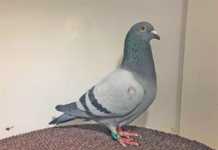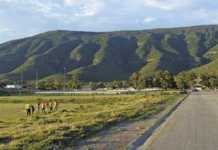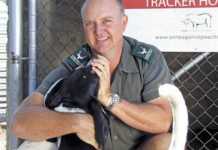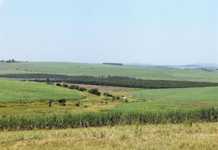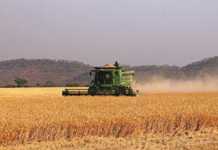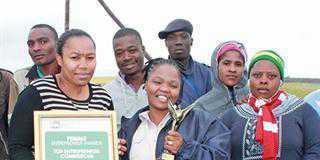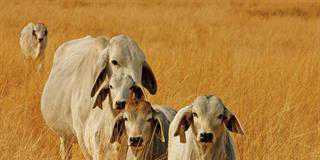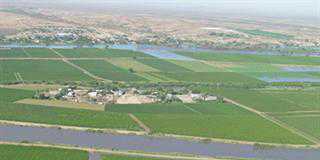Ten years ago farmers in Dordrecht and the surrounding areas of the Eastern Cape approached Penny Birch and her husband Derrick of Amersham farm to start a farm school. The farmers wanted to “bring up their children in a farm-style way,” says Penny, a qualified primary school teacher. “Memory Bradfield helped me with boarding for the pupils on her farm Leeufontein in the first year (1997) and the classes were held at Amersham. Now the pupils board at Amersham farm during the week.” Penny teaches children from grade one to grade three. She and Derrick, who farms with Merinos, have built classrooms and renovated some of the farm house rooms into dormitories and extra ablution facilities.
The atmosphere is informal, farm-style and pupils receive individual attention. “I’m old-fashioned,” Penny says. ”Good old values and principles are taught by using the farm and nature as practical sources for lessons.” When Penny had to teach her pupils about sunsets, shadows and silhouettes in art, she took them to the foot of the Stormberg Mountains, waited for the sun to start setting, and the pupils drew the most beautiful sunsets with silhouettes. “When I teach, try to do practical projects with the pupils.”
Teaching children the market system
Late last year the pupils held a market for family and friends. Everyone from parents and grandparents to aunts, uncles and cousins attended. “There were three stalls from which they could buy goods, and a tea garden,” Penny explains. The stalls were “Pretty Homes”, managed by Nadine Wiehahn and Francis Bell who are both in grade two, “Stationery Stall” manned by Melissa Bartlett (grade three) and Matthew Bradfield (grade one), and “Garden Centre” run by Amy Bradfield (grade three) and Linda Bartlett (grade one). The tea garden served tea, coffee and a menu of eats which the pupils had made. It was managed by Beth Wiehahn (grade three) and Jo Cobbold (grade one). “These budding entrepreneurs made a good profit,” Penny says. “Each pupil had to work out a float, a price list for their products (which they made mainly from waste materials such as baling twine, chopped trees, bottle tops, old tiles, stones, tins and old glass jars) and a sale strategy. They also had to manage change for their customers and the profits for the day.”
Receiving so they can give back
The pupils donated the day’s proceeds of R1 300 to the SPCA to help the many abused and neglected animals in the area. “Last year had three hans (orphaned) lambs and donated them to the pupils,” Derrick says. “The pupils had to learn how to look after the lambs, and take responsibility for their feeding and dosing. We taught them the basic principles of sheep farming.”
Earlier this year the children attended the production sale at Penhoek Pass in Dordrecht where they sold their lambs. They learned how a production sale works, what is expected of them as sellers, how an auctioneer conducts a sale and how farmers bid. “There was great excitement before the sale, mixed with apprehension as the pupils had become attached to the three lambs,” Penny recalls. “We told the pupils to introduce themselves to Brian Jenkins, the auctioneer,” Derrick says, adding that Brian was impressed with their good manners. “The farming community attending the sale was intrigued, especially Jack Miles who farms near Queenstown,” says Derrick. Brian peppered the children with questions, including what they fed the lambs, whether the lambs had been inoculated, which inoculations were used, and what the quality of the wool was. ”It was amazing, but the kids answered all his questions. Jack’s generous bid bought him the pupils’ lambs, which they accepted,” Derrick says. Some farmers asked the pupils to demonstrate to the auctioneer how they had fed the lambs with a bottle. One of the farmers gave Francis Bell a beer with a teat fixed onto it. Brian went down on his knees, amid the roaring laughter of the farmers, and Francis fed him “the bottle”. “The children still have to decide what they will do with their income from the auction. This was one of the life skills exercises dealing with people while incorporating maths and business,” explains Penny. By combining mentoring, experiences, academics and computer training, it seems this unique farm school has captured the way forward in education.
For more information contact Penny Birch on (045) 943 3036. |fw

